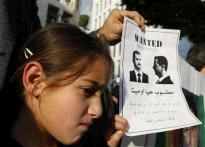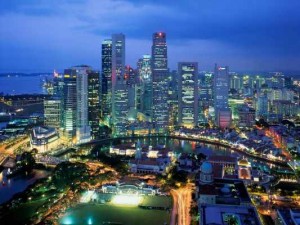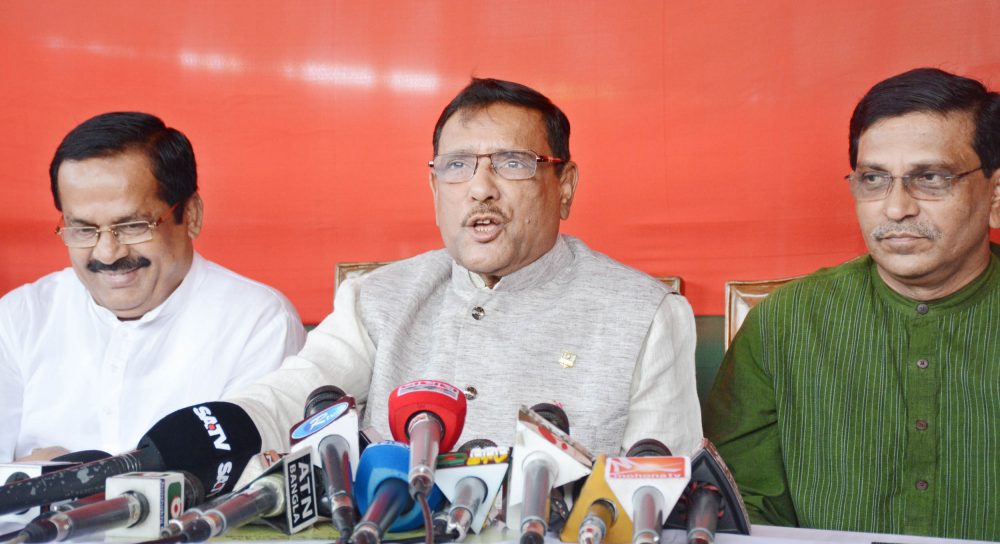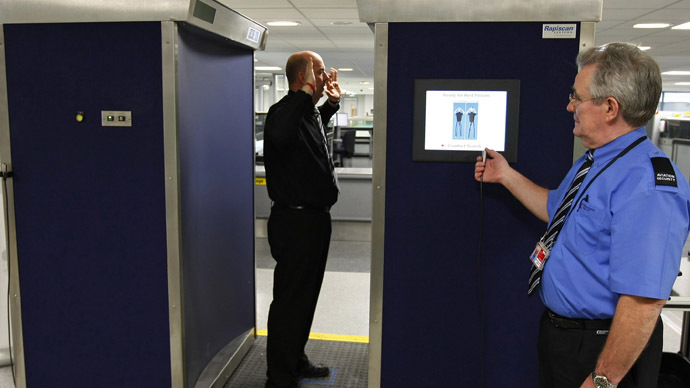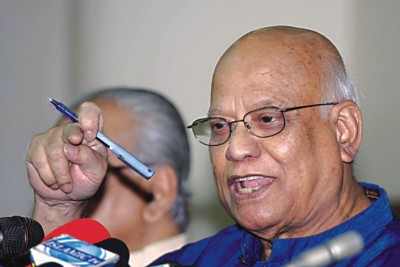 Bangladesh’s existing infrastructure cannot take the load that will come with transit to its neighbours, Finance Minister AMA Muhith said yesterday.
Bangladesh’s existing infrastructure cannot take the load that will come with transit to its neighbours, Finance Minister AMA Muhith said yesterday.
“Transit is extremely important, but mind that development of infrastructures is very basic,” Muhith said at the inaugural session of a two-day dialogue on India-Bangladesh relations at Palli Karma-Sahayak Foundation (PKSF) yesterday.
Transit between Bangladesh and India has been there since 1947. It stopped only for a brief period during the India-Pakistan war in 1965, said Muhith.
“Sometimes it [transit] was reasonably exploited. Sometimes its use was minimal, as in the past few years.”
The minister also dismissed fears that there would be fraudulent activities in the name of transit of goods. “Modern technology can detect tampering easily. So, you don’t have to waste your time over a physical examination of goods in the matter of transit.”
In a joint communiqué signed after Sheikh Hasina’s visit to New Delhi in January 2010, Bangladesh and India agreed to put in place a comprehensive framework of cooperation in transportation and connectivity, among other matters. Dhaka also agreed to allow the use of Mongla and Chittagong seaports for movement of goods to and from India by road and rail.
Since then, the transit issue has been widely discussed in the public domain.
The Hasina government, however, maintains that it will not sign any transit treaty since transit between the two countries has existed since 1947. It says it is just updating the expansion of the old transit deals and working out the operational modus operandi.
Government policymakers on different occasions have said though connectivity protocols between the two countries cover air, rail, water and roads, the use of roads will have to wait until the infrastructure is upgraded to a point where it can handle enhanced traffic.
At yesterday’s programme, Muhith expressed disappointment at the poor progress in intra-regional trade (which now stands at less than 5 per cent) among Saarc countries.
He said many studies had underlined the need for cooperation in trade and investment to boost intra-regional trade.
Pointing to the inclusion of trade and environment in the Saarc Charter years after the forum’s formation, he said, “This kind of decision requires political will.”
Such political will is needed to boost cooperation in trade and investment, which are crucial in establishing a union or a common market, the minister said.
“If cooperation is ensured in trade and investment, other issues such as water, agriculture, food security, tourism and power will fall into line.”
On the formation of executive agencies or boards, the minister said such boards could implement the decisions made at the government level.
Referring to electricity trade in the region, Sanjay Bhattacharyya, acting Indian high commissioner to Bangladesh, said dissimilarity in the grid system makes it difficult for countries to do such trade.
He said Bangladesh could invest in the power sector in India.
On the sharing of water of common rivers, Bhattacharyya said, “The Ganga sets the template for other agreements.”
He stressed the need for regional connectivity, saying it would lead to future closer relations in this part of the world.
“If people are connected nothing can stop us.”
He said of India’s US$1 billion credit to Bangladesh, both sides had reached an agreement on $830 million for a number of projects.
The Indian acting high commissioner claimed that Bangladesh now hardly faced any tangible non-tariff barriers (NTBs) to export goods to his country.
However, Tariff Commission Chairman Mozibur Rahman told The Daily Star that Bangladeshi businesses still faced many non-tariff barriers in exporting goods to India.
Weak infrastructure and poor banking facilities at border points are among those barriers, he said.
Source : ANN







